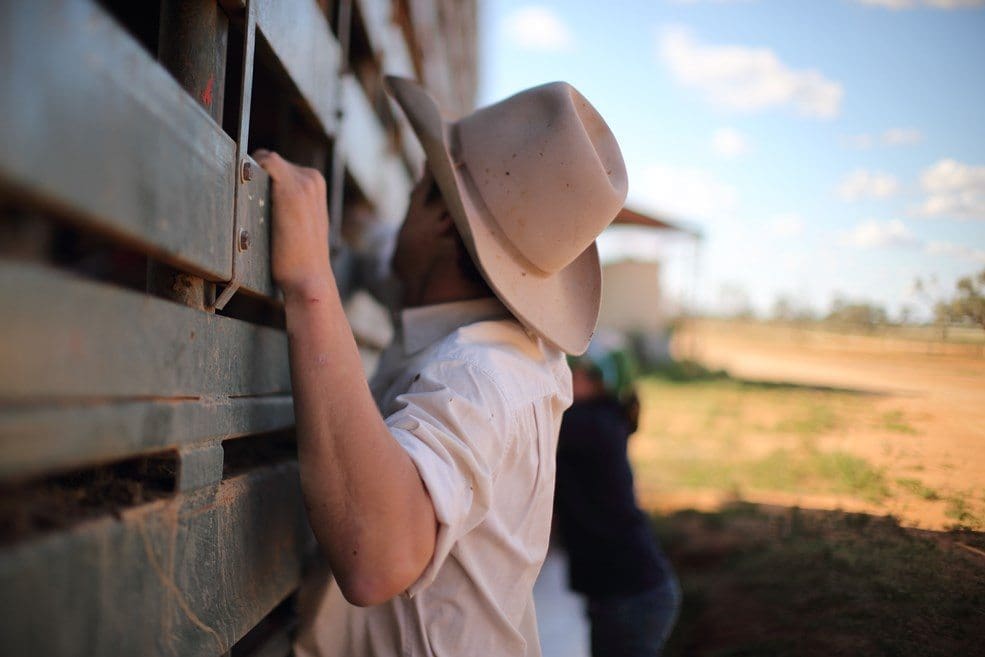Latest listings on Jobs Central recruitment page:
- Livestock Overseer – Epenarra, NT – AGP
- Stock Person / Station Hand – Princess Royal Station
- Saleyard Manager – SELX
- Manager Ag Production/Protection – NSW DPI
- General Manager-Lawson Grains WA – via Rimfire
- GM Operations/COO Regional NSW-Lawson Grains via Rimfire
- HSE & Quality Systems Manager – AAM Group
- Head Stockman – Mt Emu Pastoral Co
- Head Stockperson – Innamincka Station – SKidman & Co
- Senior Stationhand/Overseer – Crown State Pastoral
- Chairperson – Sheep Producers Aust – via Carnovale
- Graduate/Stationhand – King Island TAS
Click here to access these and other exciting meat and livestock supply chain positions currently listed on Jobs Central.

IF AGRICULTURE is going to overcome its persistent skills shortage, prospective employees need to know it’s not just a sector for farmers, AgriFutures* managing director John Harvey says.
Evidence from government organisations, industry groups, academics and almost anyone who has ever tried to find highly-skilled candidates for ag sector job vacancies, is that the Australian agriculture sector faces a near-critical skills shortage, Mr Harvey suggests.
While agriculture is the biggest employer in rural and regional Australia, employing around 300,000 people directly and more than 1.6 million people across the supply chain, workforce capacity looms as one of the sector’s most significant issues.
“As agriculture faces the challenge of feeding a rapidly growing global population and increasing technical complexity, the composition of jobs and available career paths have changed considerably in recent times and now the opportunities are abundant,” he said.
“For the past 10 years, there have consistently been many more jobs available in agriculture than there are qualified candidates. University graduates finishing ag-related degrees can expect to have full-time employment secured before they’ve completed their degree. Indeed, according to research from Charles Sturt University’s Professor Jim Pratley, there are upwards of five jobs for each graduate in the current market.
Most of these graduates (and indeed many of the people employed in the ag sector) were not ‘farmers’, Mr Harvey said.
“The modern Australian agriculture industry is about the whole value chain, from on-farm production through to transport, manufacturing, marketing, finance, innovation, services and more,” he said.
“We have to bust the myth that ‘agriculture’ equals ‘farming’. You don’t have to be a farmer to work in agriculture, you don’t have to have an agricultural background or qualification to work in agriculture, and you don’t necessarily have to live in a rural area to be part of the sector.”
“In reality, it is any job that is involved in the production of food, feed and fibre or that supports that production and helps get those products to market. It’s everything from a graphic designer working on packaging concepts for supermarket value-added beef or lamb products to engineers building robots to assist in processing operations, to the train driver delivering chilled containers to port.”
“The future of our sector depends not only on more farmers but on more people coming to work in the sector in an off-farm capacity,” Mr Harvey said.
“We used to think that to secure agriculture’s future we had to keep young people on the land and working on farms. Now we know we must not only retain our young farmers but attract people from other industries and other backgrounds.”
Gender diversity
And agriculture is not a male-dominated sector anymore.
Enrolment data from university agriculture courses shows females have outnumbered males (albeit marginally) since 2003.
AgriFutures own Horizon Scholarship program, which supports young people passionate about agriculture and helps them become part of the sector’s next generation of leaders, has been awarded to more women than men again this year. And even more significantly it’s no longer a scholarship for rural university students but is attracting young people from metropolitan areas who are passionate about agriculture despite not being from a farming background.
“To guarantee the future workforce of our sector we have to do a better job of promoting the strength and diversity of Australian agriculture and its abundant career opportunities,” Mr Harvey said.
Raising profile
Mick Hay, Managing Director of Rimfire Resources, a specialist agribusiness recruitment company, is passionate about raising the profile of the sector as exciting, global, diverse, geographically spread and on the cutting edge of technology.
“When I speak to high school or university students who are studying agriculture or related subjects and degrees, I tell them they’ve absolutely made the right decision investing in a career in agribusiness,” Mr Hay said.
“External perceptions of the sector have certainly improved, but there’s still more to be done. One of the sector’s main challenges is that people don’t really understand the full length, breadth, and depth of opportunities in agribusiness, and that’s where there’s room for us all to tell more of our success stories.”
Yes, progress is being made but if the sector is to grow as expected, make the productivity gains required to feed the world and keep abreast of new technology we need more people to come across to agriculture, Mr Harvey said.
“As Professor Pratley says, we must ‘maintain the rage’ about attracting talent to agriculture if we are going to be able to meet the needs of an expanding industry[iv].
“Given we are competing against a myriad of other sectors for the new skills our industry needs, like IT and engineering, more work has to be done to make agriculture stand out and attract talented people. The future workforce of our industries is not guaranteed without more action to improve the image of the sector, moving it away from the traditional farmer icon, and promoting agriculture as a truly fulfilling career choice,” he said.
* AgriFutures is the new name for the Rural Industries Research and Development Corporation
